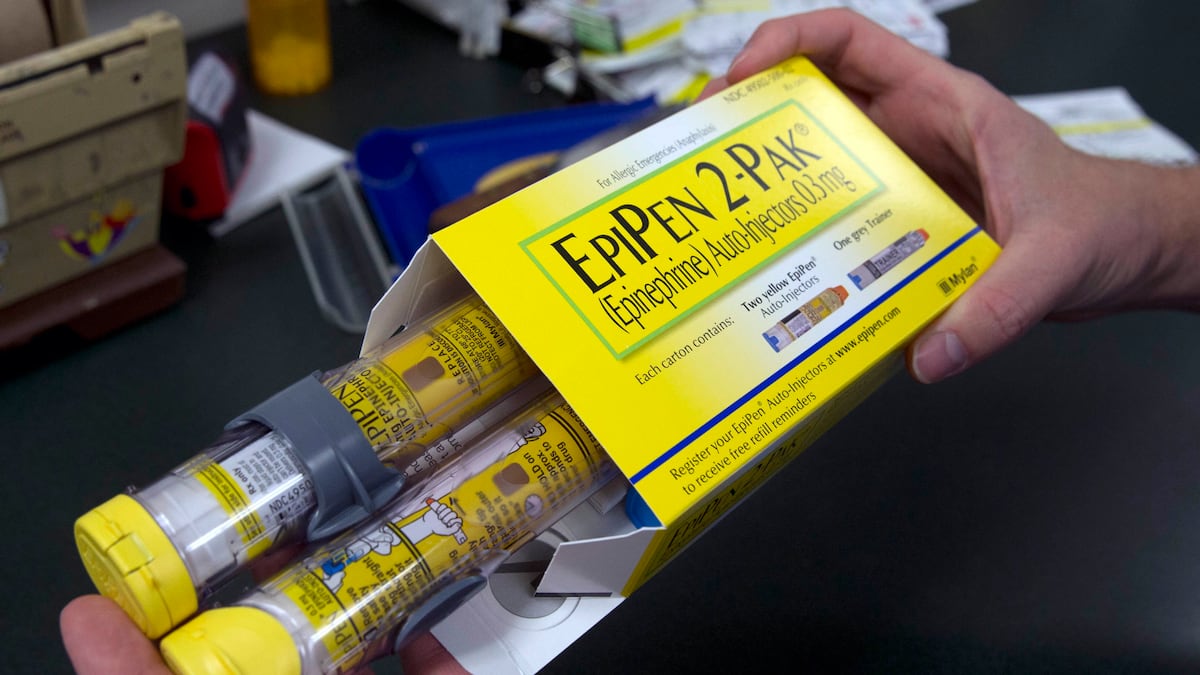FILE – In this July 8, 2016, file photo, a pharmacist holds a package of EpiPens epinephrine auto-injector, a Mylan product, in Sacramento, Calif. Insurers will sometimes choose to cover a significantly more expensive drug or device, such as…
Why insurers are covering a $4,500 EpiPen alternative — and calling it a cost saver
